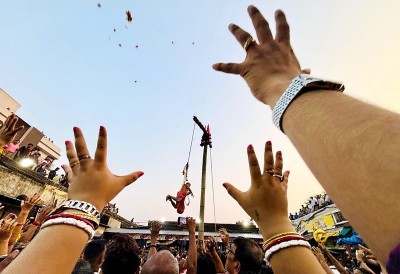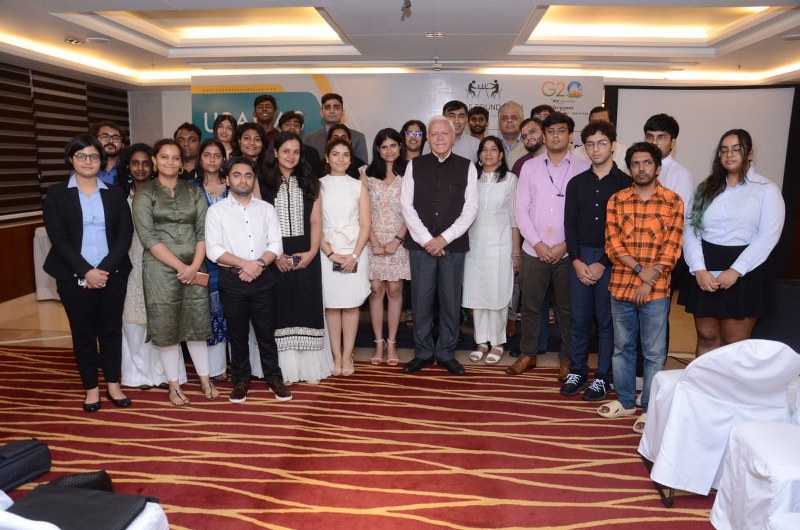 Usnas Foundation
Usnas Foundation
New Delhi: Usanas Foundation launches first edition of the scholars programme
Usanas Foundation launched its first edition of the Usanas Scholars Programme on September 13 and 14 at the India Habitat Centre in New Delhi.
The two-day certified workshop’s theme is Current Trends in Foreign Policy and International Security.
The workshop is sponsored by the Taipei Economic and Cultural Centre in India and Press Room Automation & Feed Fixtures Pvt. Ltd. The knowledge partners of the workshop are the Centre for North East Asian Studies (CNEAS) and the Centre for Security Studies (CSS) from OP Jindal Global University.
The workshop encompassed training modules on a wide range of themes such as the Chinese Communist Party, Influence Operations, the Rise of Global South and Economic Rebalancing, War Doctrines, India's Strategic Thought and Culture, AI and Technology-driven Warfare, Misinformation and Disinformation Challenges, and Terrorism, Intelligence and Radicalisation. In our modules, our focus was on developing critical thinking through a participatory model of learning and student engagement.
The keynote speaker was Ambassador Sanjay Verma, Secretary (West), Ministry of External Affairs.
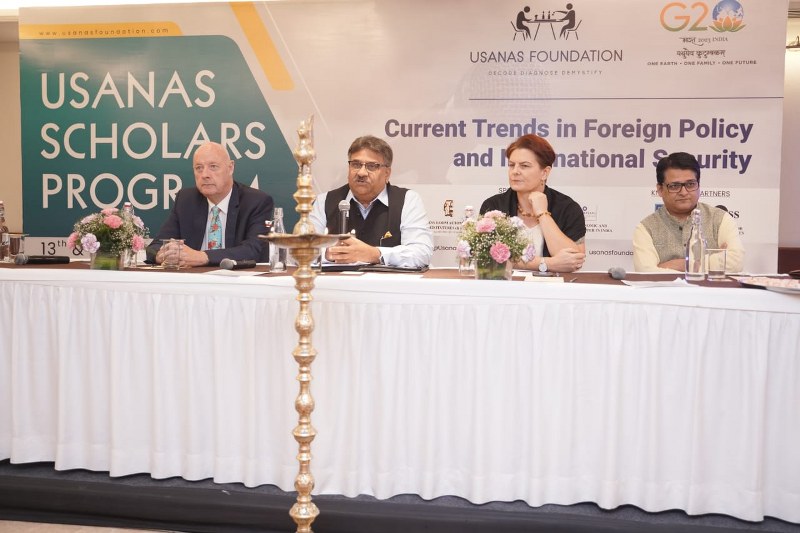
In his keynote speech, he highlighted the priorities of India’s Foreign Policy in this uncertain world and the resurgence of the identities of the great superpowers.
Verma mentioned the undeniable rise of China which has, at times, been positive but most of the times has had adverse effects.
He applauded India’s success at the G20 summit and said that Indians are finally being heard by the world.
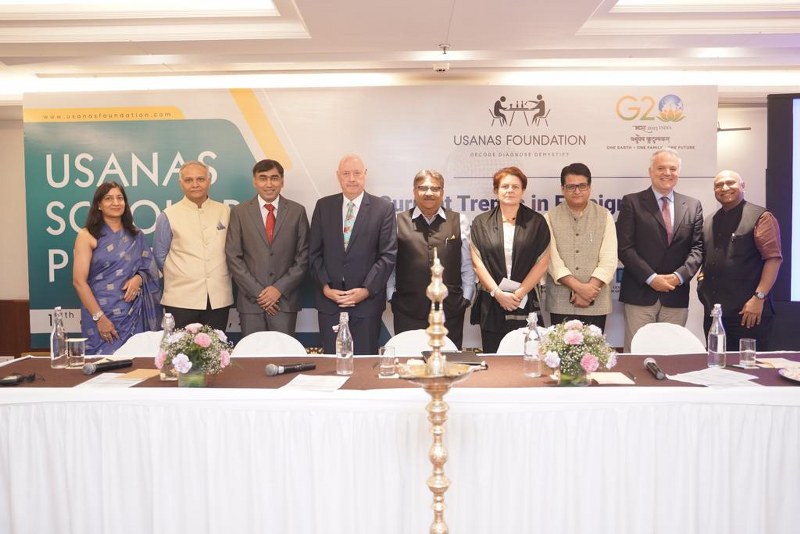
He stated, “Global South is the current nomenclature, earlier it was called third-world countries. However, they are unevenly developing but are emerging.”
Abhinav Pandya, Founder & CEO, of Usanas Foundation highlighted that the Scholars Program, 2023 is a novel attempt that aimed at taking discussions and dialogues on security challenges beyond Delhi as they do not only fall under the purview of the elites and officials but affect each citizen of India in some capacity.
He stressed the importance and need for India to explore its civilizational legacy and create its own narrative.
He firmly believes that this would lead to a major revolution in the theoretical aspects of international relations, ultimately contributing to world peace.
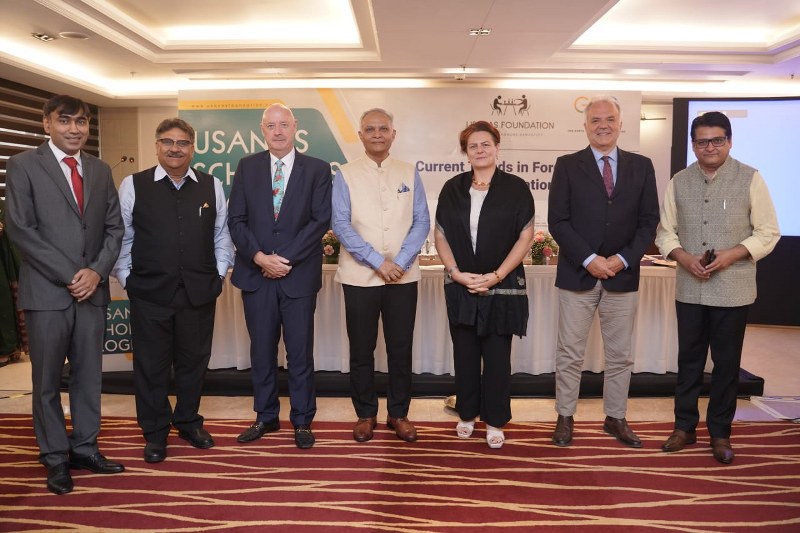
He mentioned how India perceives the world and emphasized the importance of the ideology of Vasudhaiva Kutumbakam, which dictates the foreign policy of India.
A panel discussion was also held titled “India and the New World Order”, which was chaired by Anil Trigunayat and the panel included Diana Mickeviciene, Freddy Svane, and Harsh Pant.
Svane highlighted how there’s been a change in India between his two tenures in India, with progress in fields like digitalization, etc. Lithuanian Amb. Mickeviciene was quite vocal against the bullying nature of China.
Pant emphasized the importance of cultivating a healthy academic culture in India.
The other eminent Chinese expert Sriparna Pathak shed light on the Chinese Communist Party, its war doctrines, and espionage networks.
She highlighted the power structure, China’s economic stagnation, and finally, the role of the PLA in the Chinese political structure. Other imminent speakers who graced the workshop were Mumin Chen, Kabir Taneja, Tanmoy Chakraborty, and Namrita Hasija.
The second day commenced with Adil Rasheed’s module on ‘Ancient Indian Moorings of India’s Strategic Thought and Culture’. He started his lecture by discussing the strategic culture of various countries and how they’re related to their historical traditions and thinkers.
He also did a comparative analysis of the strategic culture of India as well as that of the Western civilization. He briefly discussed Game Theory and the Arthashastra by Kautilya.
Finally, he concluded his speech by evaluating the influence of the Vedanta on Indian strategic thought.
The scholars were taught about the ‘World of Intelligence, Militancy in Kashmir, and Counter-Insurgency Operations’ by Shiv Murari Sahai in an engaging discussion with the participants.
He discussed the life of an IPS officer in a conflict zone, what triggers civilians to join various terrorist organizations, and the differences between various terror outfits.
Srikanth Kondapalli highlighted the various aspects of China’s strategic thinking including the the Middle Kingdom syndrome, the Spring and Autumn period, and Sun Tzu’s philosophy of deception that is often seen in contemporary Chinese decision making. Finally, he discussed Sino-centrism, the Great Wall syndrome, and Deng Xiaoping’s idea of ‘keeping a low profile’.
Abhinav Pandya, CEO of Usanas Foundation, read the 79th successor to Tirthankar Mahavir, Spiritual Sovereign JaincharyaYugbhushanSuriji’s message on “Global Affairs through Dharmacharya’s Prism: A Contemporary Analysis”.
The workshop concluded with a final fireside chat with Ambassador Ashok Sajjanhar and Lt. Gen. (Retd.) Raj Shukla on careers in Diplomacy, Civil Services, and Security.
Support Our Journalism
We cannot do without you.. your contribution supports unbiased journalism
IBNS is not driven by any ism- not wokeism, not racism, not skewed secularism, not hyper right-wing or left liberal ideals, nor by any hardline religious beliefs or hyper nationalism. We want to serve you good old objective news, as they are. We do not judge or preach. We let people decide for themselves. We only try to present factual and well-sourced news.





